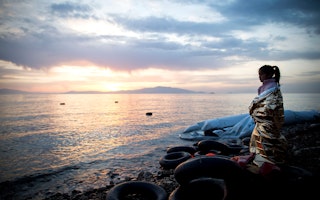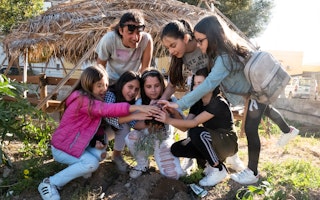In discussions on irregular migration in Europe, undeclared work is generally viewed as a “pull factor”—positive aspects of a destination-country that attract an individual or group to leave their home—for both employers as well as prospective migrants, and especially in sectors such as agriculture. A closer examination of the agricultural model, however, reveals that structural forces are driving demand for work and incentivizing exploitation. This is particularly evident in Southern Italy, a region famous for its produce, where both civil society organizations and the media have documented exploitation of migrant workers. A closer examination of EU and member states efforts to avoid exploitation is needed.
In Is Italian Agriculture a ‘Pull Factor’ for Irregular Migration—and, If So, Why?, a new study, authors from the Open Society Foundations’ European Policy Institute and the European University Institute look at how Europe's Common Agricultural Policy, the practices of supermarket chains, organized crime, and gang-master recruitment practices contribute to migrant exploitation. The study further recommends a closer examination of EU member state efforts to counter exploitation and offers an overview of private sector practice’s intended to combat exploitation—such as the provision of information on workers’ rights, adequate housing and transport, and EU-wide labeling schemes, among others.
Download
-
Is Italian Agriculture a “Pull Factor” for Irregular Migration—And, If So, Why? (756.52 Kb pdf file)
Download the 40-page report.
-
Policy Brief: Is Italian Agriculture a “Pull Factor” for Irregular Migration—And, If So, Why? (445.08 Kb pdf file)
Download the two-page policy brief.
Read more
A Promising Step
Q&A: Progress for Migrant Workers in Italy

The government of Italy’s COVID-19 stimulus proposal includes measures to protect migrant laborers working in some of the country’s most important industries. While this is welcome news, more is needed.
Hope on Lesvos
Q&A: Forging a Bond between Locals and Refugees

The Greek island of Lesvos remains at the frontlines of refugee arrivals to Europe. Currently, more than 21,000 refugees are held there. A grassroots group called the Starfish Foundation is working to improve the lives of locals and refugees.
CULTIVATING COMMUNITY
A Garden Grows on Lampedusa

On the Mediterranean island of Lampedusa, which remains on the forefront of migration to Europe, the locals are reclaiming their culture of farming and building community—one ancient seed at a time.
